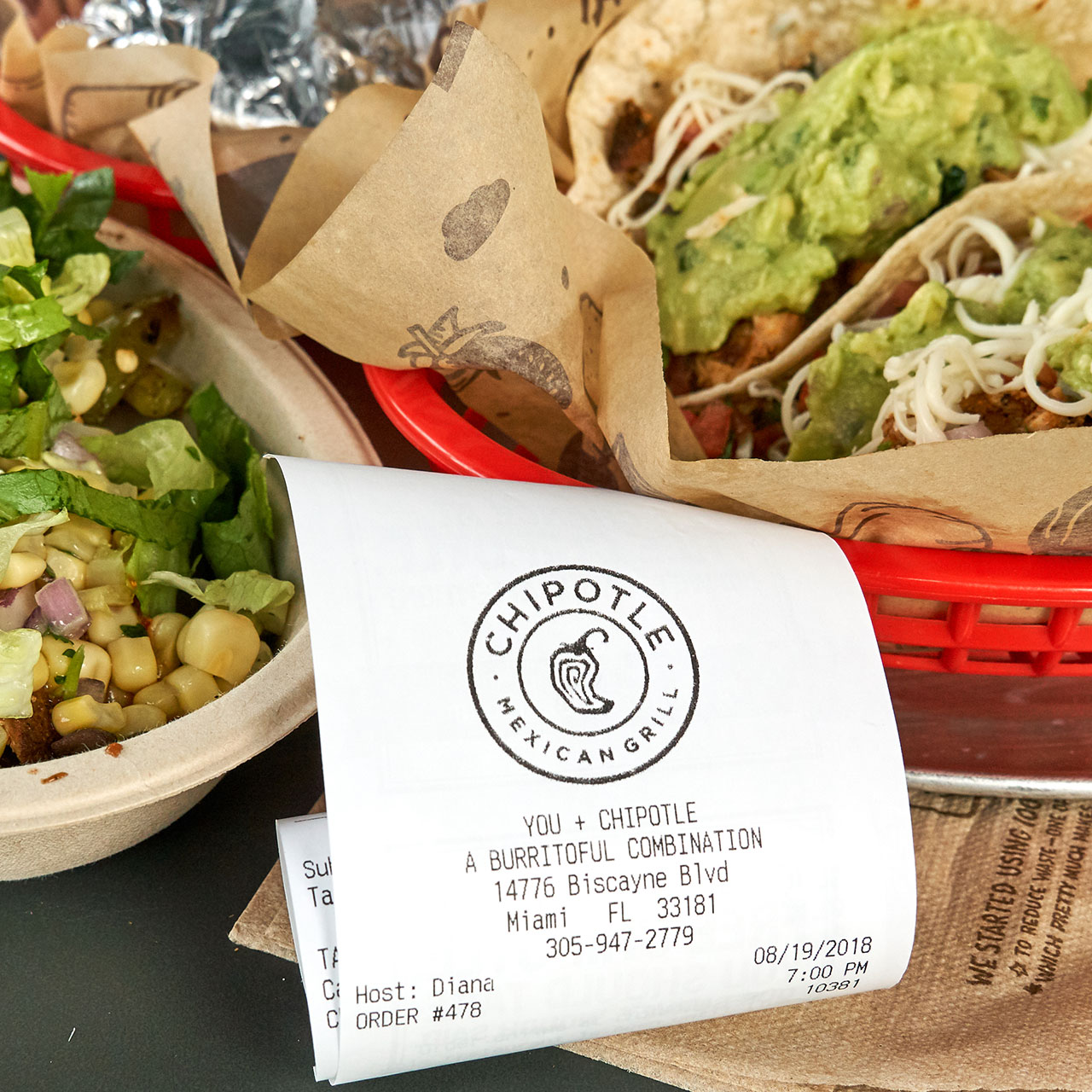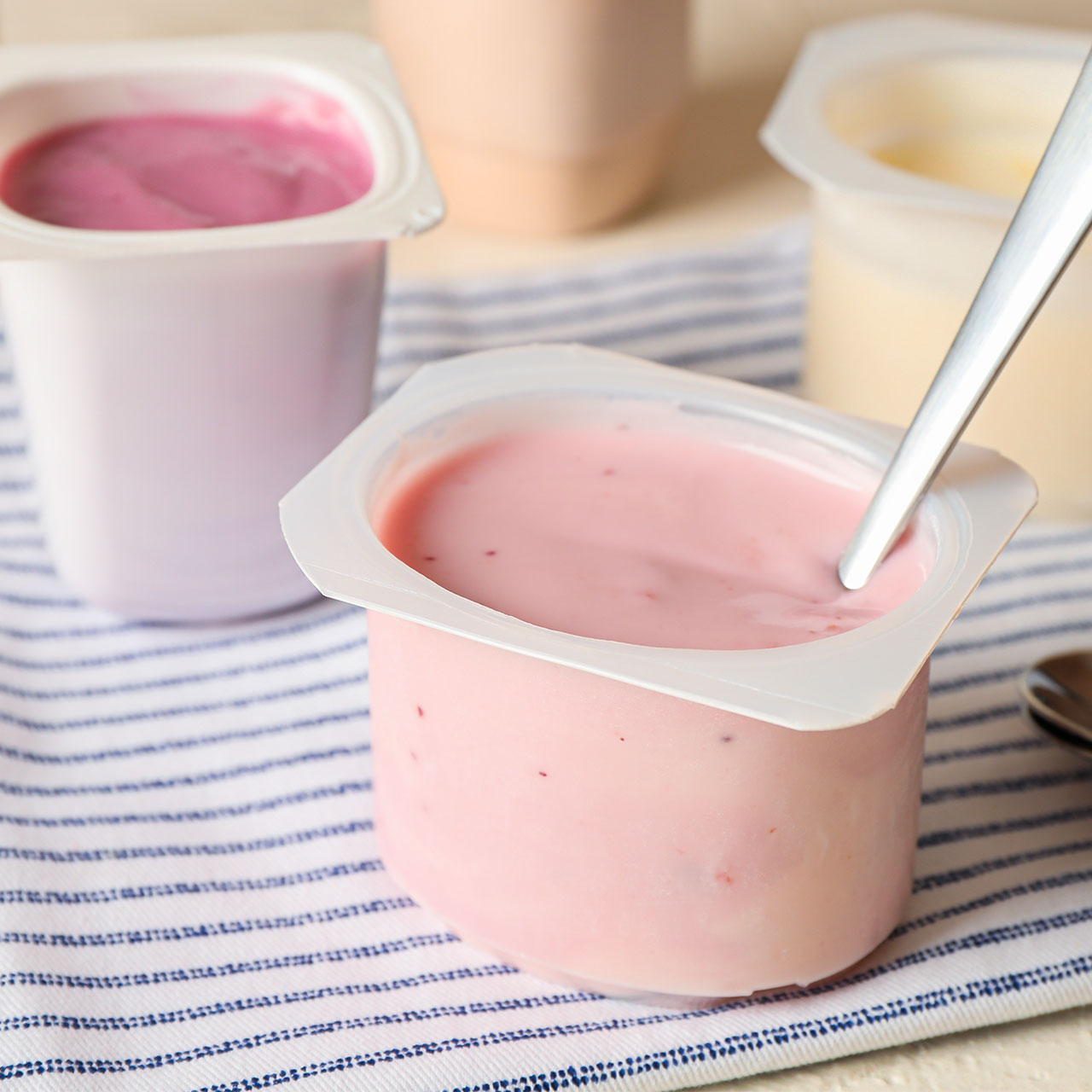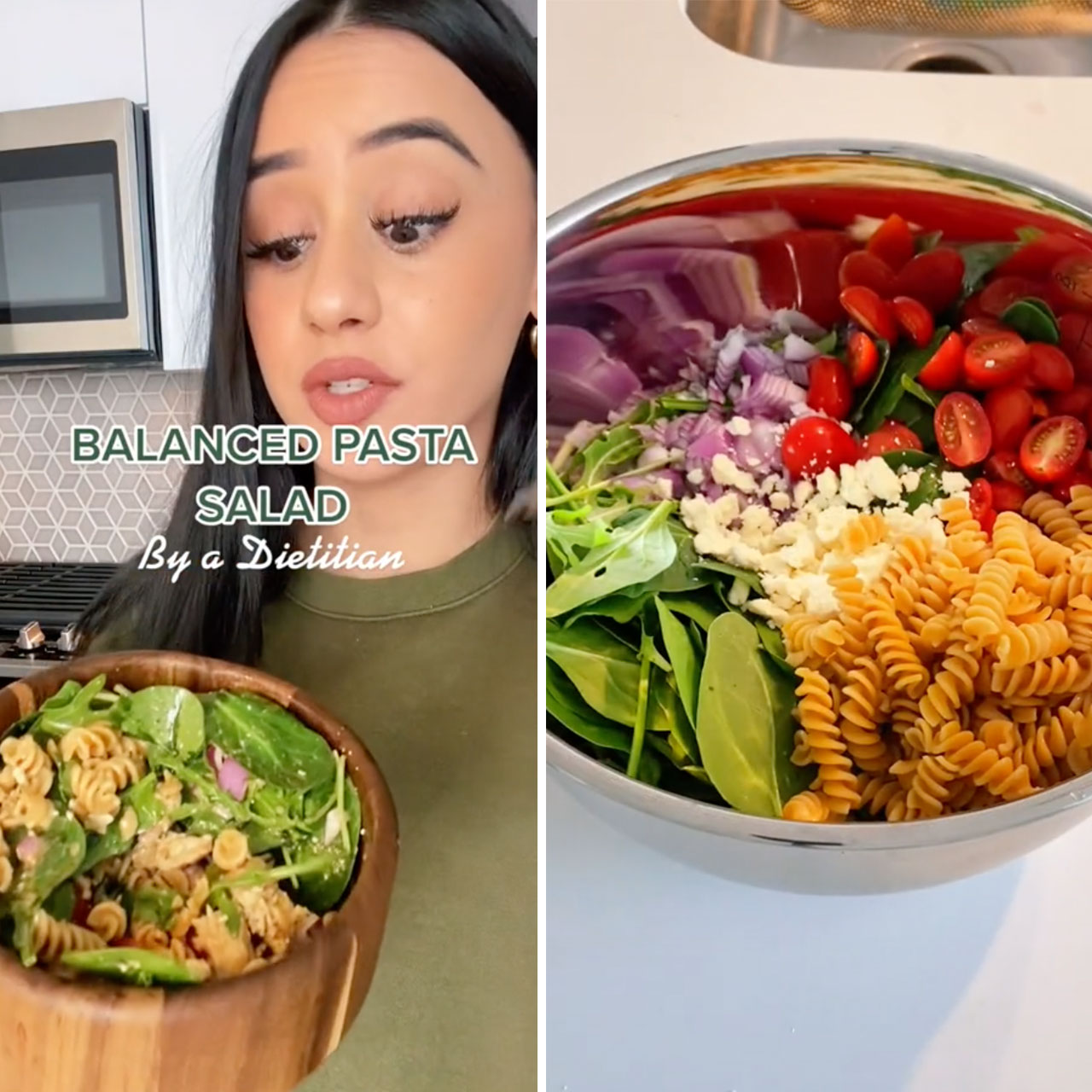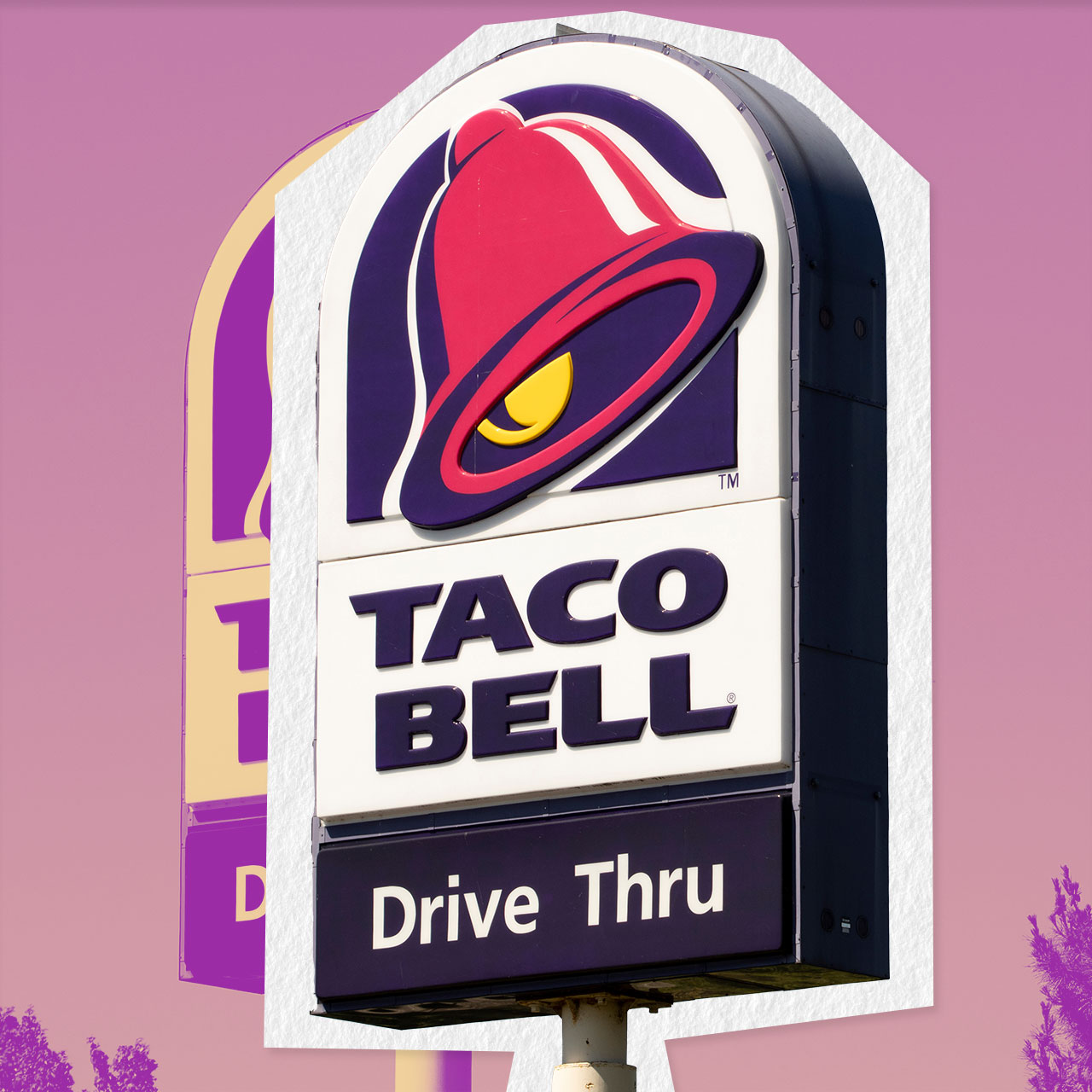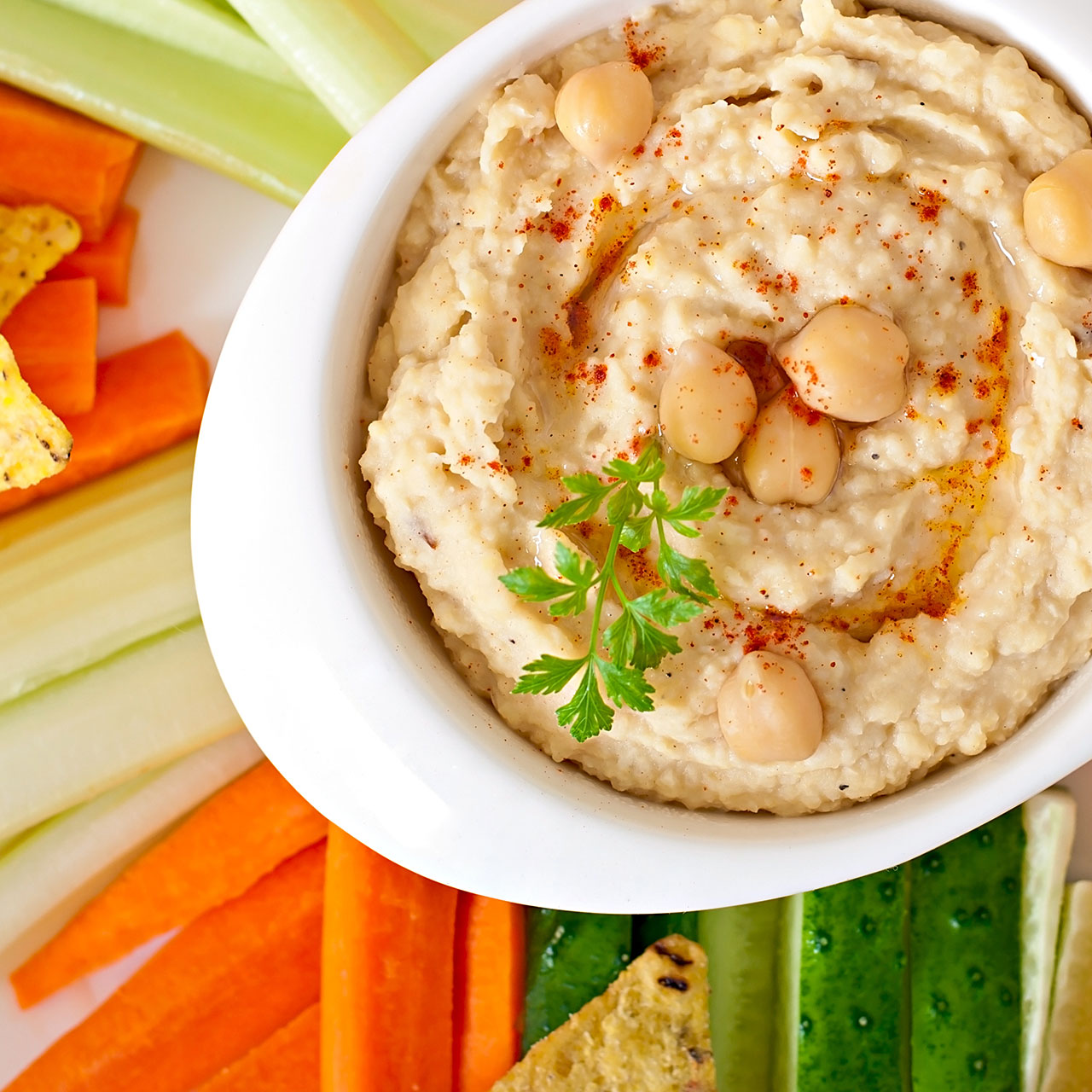Menopause marks a significant transition in life, ushering in a new phase characterized by hormonal changes and physical transformations. While menopause is a natural process, it often brings along a host of challenges, including weight gain and changes in body composition. However, amidst these challenges are opportunities for women to harness the power of nutrition to navigate this transition with greater ease. By making simple dietary changes, women can mitigate the effects of menopause-related weight gain and promote overall health and well-being.
We spoke with Elizabeth Ward, MS, RDN, to learn about four simple changes you can make to your diet if you want to lose weight during menopause. Ward revealed that the four helpful changes are to pump up protein, frontload your calories, focus on fiber, and avoid fad/low-calorie diets. Read on to learn more.

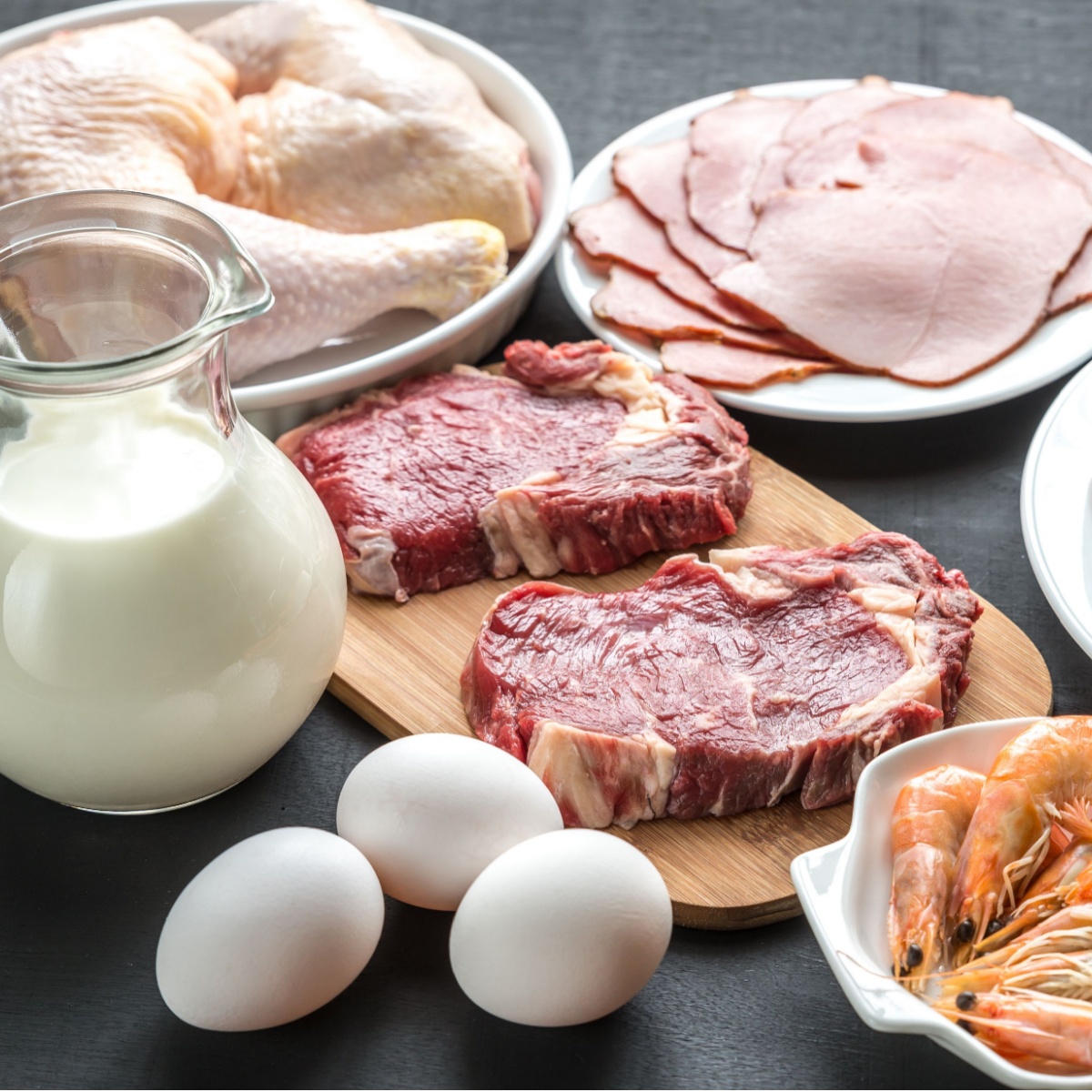
Pump Up Protein
Pumping up protein intake can be a strategic approach to managing weight during menopause. As women age and go through menopause, they often experience changes in metabolism and hormonal fluctuations that can lead to increased body fat and decreased muscle mass.
Protein is essential for preserving lean muscle mass, which is crucial for maintaining a healthy metabolism and supporting weight loss efforts.
Ward says that even though "protein needs are based on body weight, generally speaking, most women should get about 25 to 30 grams at each meal. Adequate protein intake is necessary for protecting muscle mass and for building more (which burns slightly more calories). Protein also promotes eating satisfaction, and provides a slight calorie-burning edge. That’s because protein has a greater 'thermic effect of food,' (TEF) than carbohydrates or fats. [Plus], protein takes more energy for the body to digest and absorb."

Frontload Your Calories
Frontloading calories, or consuming a larger portion of daily calories earlier in the day, can be a beneficial strategy for weight management during menopause. As individuals get older and experience hormonal changes, their metabolism may slow down, making it more difficult to lose weight.
"Eat more of your calories earlier in the day, when your body is best able to process food (insulin is more effective earlier in the day). For example, if you're following an 1800-calorie eating plan, try to divide your calories into three equal meals," Ward notes.
We all have heard how eating dinner later in the night can affect us in the morning, and Ward elaborates on this by saying, "Most women skip on breakfast because they're not hungry which may be because they overeat at night. (It's a vicious cycle!) It’s a good idea to evenly distribute calories across three meals, as there is mounting evidence that saving most of your calories for later in the day may contribute to weight gain. In a 2022 cell study, those who ate dinner at 9PM burned fewer calories during the day."
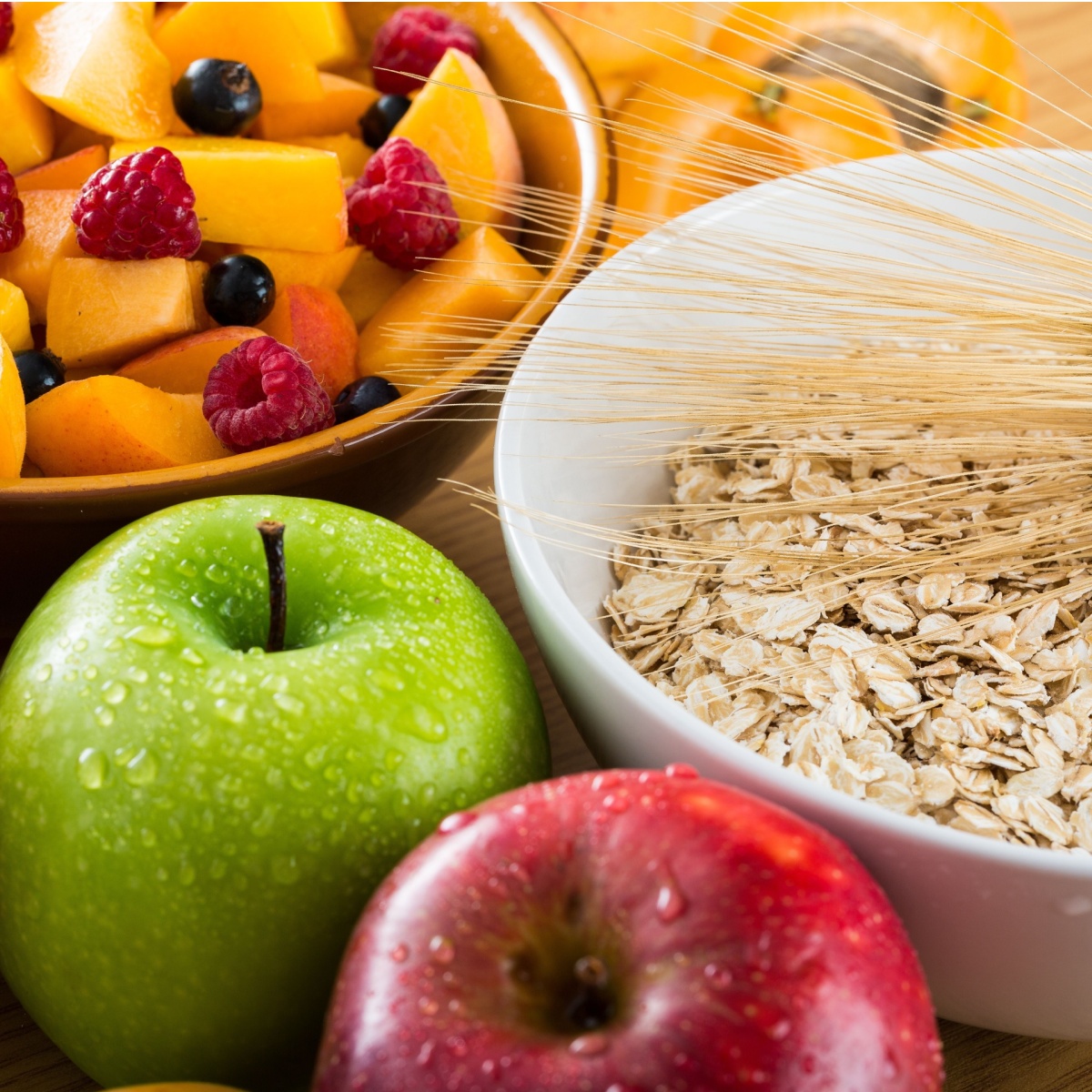
Focus On Fiber
Fiber-rich foods, such as fruits, vegetables, whole grains, legumes, and nuts, can help to increase feelings of fullness, regulate appetite, and support healthy digestion. By incorporating more fiber into their diets, women can slow down the absorption of sugar and carbohydrates, preventing spikes in blood sugar levels and reducing cravings for unhealthy snacks.
Ward highly recommends eating high-fiber foods and notes that "women need about 30 grams of fiber daily. Fiber helps slow the passage of food through the digestive system so that you feel fuller for longer. Fiber also contributes to eating satisfaction so that you're not always looking for something to eat and consuming extra calories. American adults eat only half the fiber recommended by the Dietary Guidelines for Americans [and] a 2019 study in The Journal of Nutrition found that people who ate about 25 grams of fiber daily shed the most pounds."

Avoid Fad/Low-Calorie Diets
While these diets may promise rapid results, they often fail to provide the essential nutrients needed for overall health and well-being, especially during this hormonal transition. Additionally, restrictive diets can lead to feelings of deprivation and may exacerbate hormonal imbalances, making weight loss more challenging in the long run.
Ward concludes by warning that "constantly dieting can harm your metabolism and your mental health. Even though fad diets never work in the long run, you may feel shame for failing to keep the weight loss. The goal in midlife is to find a way of eating that you can live with and that's good for your bones, heart, brain, gut and mental health."
She cautions against going on these hyped-up diets that could actually hurt you more, "this is not the time to starve yourself, which can actually be dangerous as your body is not as resilient as it was in your 20s and 30s."



